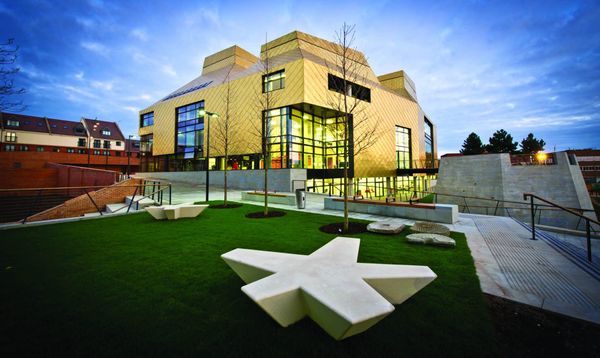Accessible Open Access and Information Resources on Disability and Human Rights
Why Accessible Open Access? Well, in principle … And why not?
By the year 2017 it will have been 15 years since the Budapest initiative for Open Access. Various initiatives  have since been taken, such as the Bethesda Declaration on Open Access in 2003, the Berlin Declaration on Open Access and even IFLA’s adherence to the declaration Of Berlin, in 2011.
have since been taken, such as the Bethesda Declaration on Open Access in 2003, the Berlin Declaration on Open Access and even IFLA’s adherence to the declaration Of Berlin, in 2011.
Since 2002, the world has worked hard for open access as a way of managing knowledge and the right of access to information for all, in an editorial world that is capably restrictive.
So far, we have discussed free access to information for all; but “all” has not been defined.
Who are “all”? “All” can be all the people who make up the academic and scientific community, or more directly, everybody in the world. But again, who makes up the global academic and scientific community? Who are all the people in the world? The first restriction of access to information and services, is known as the “digital divide”. “Everyone” does not include those who are deprived of services as basic as electric power, which are essential to be able to count on the possibility of access to the Internet; but this debate is not what brings us together now. Also, “everyone” cannot be those who have some type of disability. And saying that disability impedes or hinders access to information, I emphasize, is not correct.
Restrictions, difficulties and impediments to access to information are rigorously social, imposed by barriers that are developed by other people who, without disability, have not noticed the need to create, manage and work in environments that are accessible to all, regardless of the condition in which they are in. With this in mind, it is possible to deepen the concept of the social model of disability, developed by Dr. Agustina Palacios, among other outstanding authors in the field.
At this point of reflection, it is that I question: Why not Accesible Open Access? Information professionals are primarily responsible for advocating for the right of access to information for all people, in all conditions. So why don’t we work on the importance of producing, managing, editing, publishing, and disposing in accessible open access?
Talking about accessible open access implies that the production of science is available in accessible formats to all people, ergo, people with disabilities are included. Some notes on these issues can be consulted in this article.
And what about information resources on disability and human rights?
In Latin America, the CDPD Network, Ibero-American Network of Experts on the Rights of Persons with Disabilities, is an organization for academic and social purposes whose mission is the study, implementation and follow-up of the International Convention on the Rights of Persons with Disabilities. Rights of Persons with Disabilities (CDPD), as well as the legal and social principles it promotes. Within the framework of the CDPD Network, the Digital Repository on Discapacity and Human Rights can be consulted.
The RED CDPD Repository is an organized and stable digital archive, where documents are archived and / or disseminated based on the use of standardized standards and protocols, which enhance the visibility on the Internet of authors and documents. In this way they are recoverable both from specialized collectors and search engines as well as from general search engines.
It is a repository semi-open access, under the sensitivity of the material being told. Although the first priority of this project is access to information and open access, work is done with copyrightable material, which is restricted access and exclusively used for visually impaired people; And open access material available to the entire scientific, academic and civic community. The CDPD Network Repository contains, preserves and disseminates documents on Disability and Human Rights, from public and private sectors, open access and restricted by copyright. Adhering to the policy of open access (Open Access), documents that have their respective licenses are available for free and free. The liable copyright documents are available in full text, restricted and free, to people with disabilities.
The objectives of this repository are:
Short term:
– Immediately dispose of the web publication of the repository with a large number of digital objects available to the end user;
– Allow to locate quickly and efficiently all available literature, which responds to the lines of research of interest, in our case: Disability and Human Rights.
In the medium term:
– Ensure constant and continuous growth over the collection of digital objects that make up the repository.
Long-term:
– Achieve a relevant information retrieval system for all countries that are part of the CDPD Network, academic community and the public in general;
– Ensure access to information for people with disabilities;
– Position the repository as an international reference tool in the field of consultation and access to information on disability and human rights.
In another opportunity, I will be happy to present all the products and services of the CDPD Network, specialized in disability and human rights in open access.
A big hello until then,



